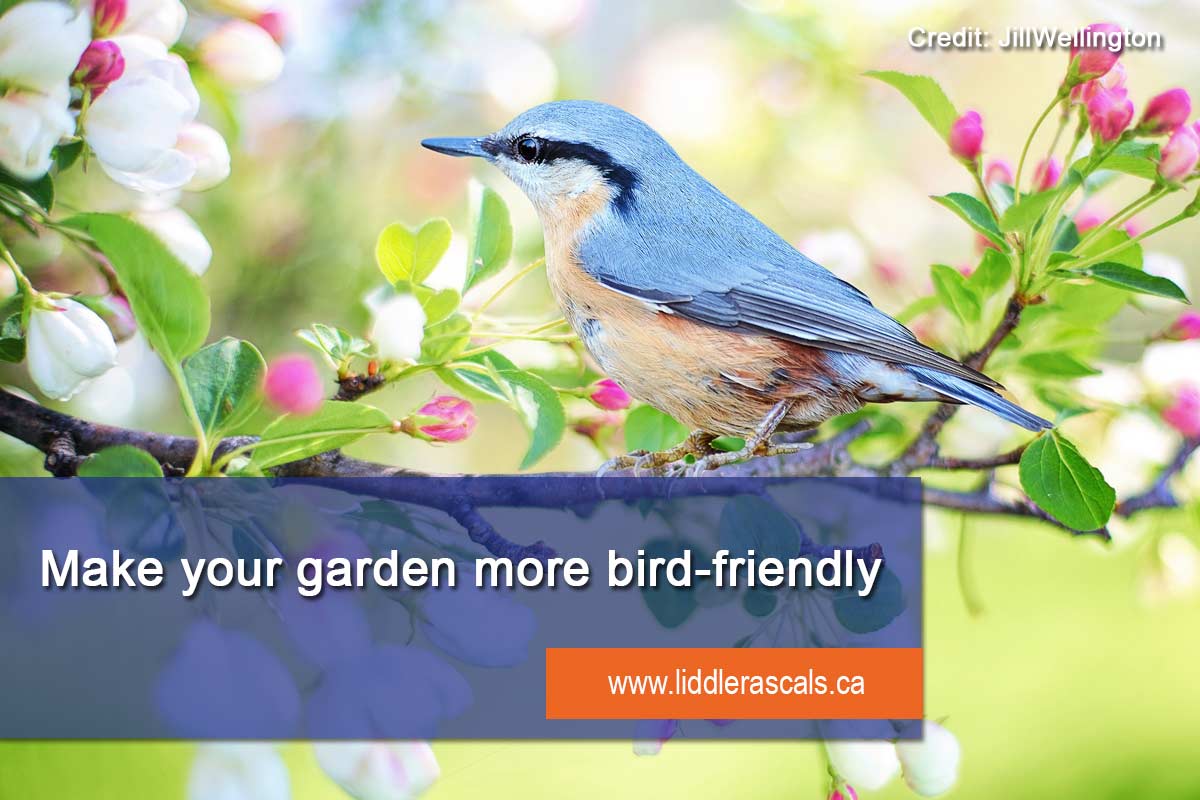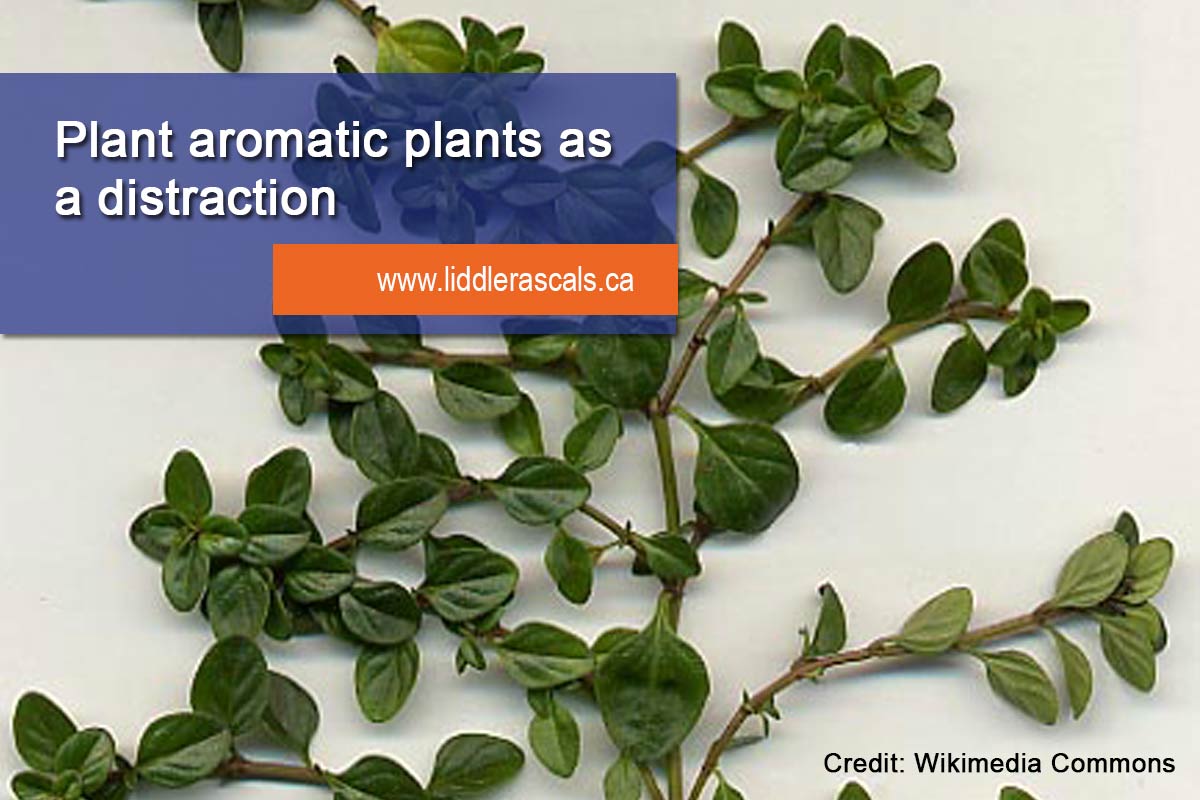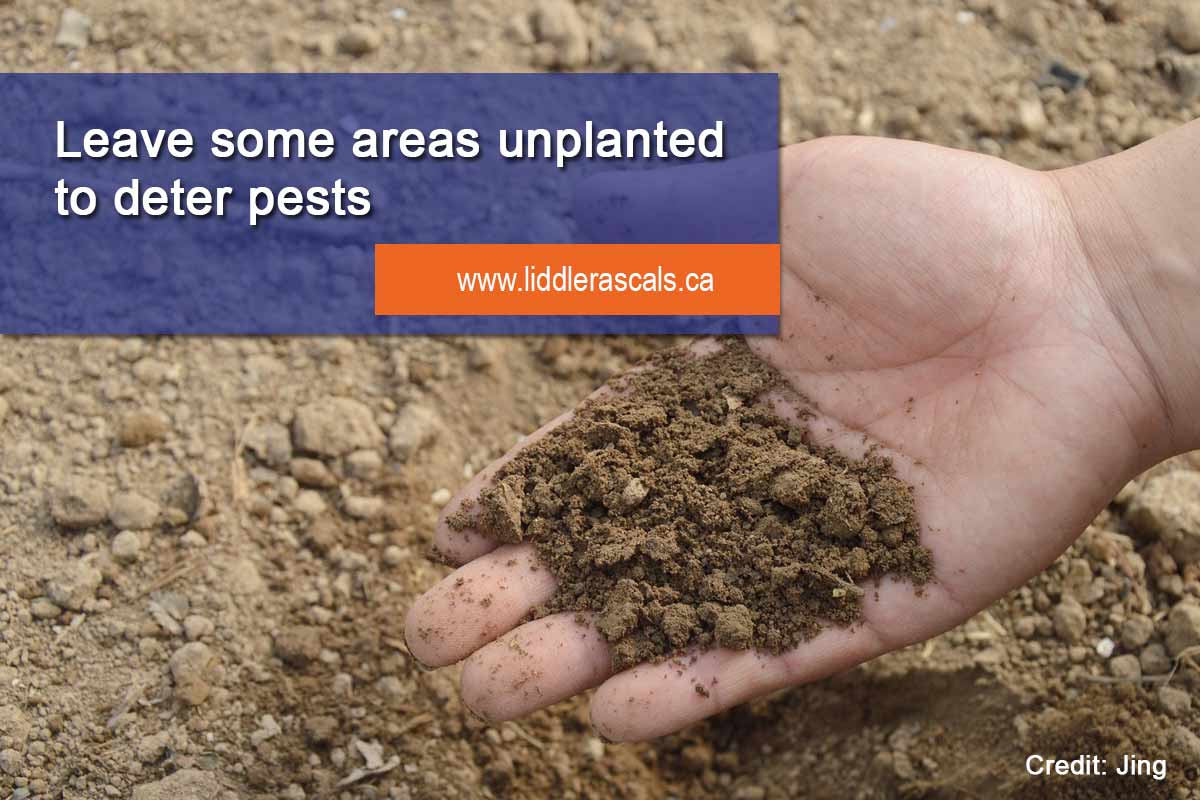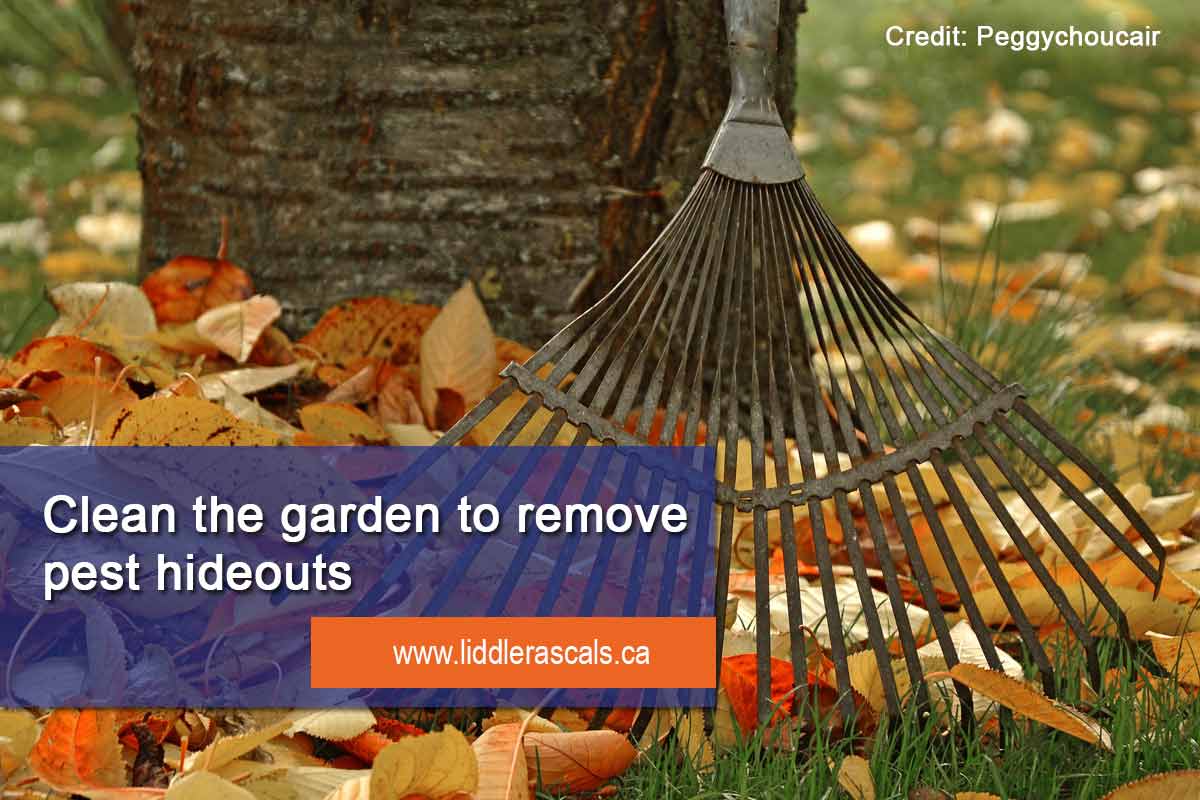There’s plenty of options available for keeping pests out of the garden, many of them all-natural and eco-friendly. It’s generally a good idea to go for all-natural methods to preserve your plants and keep from harming the environment. Try out these pest control ideas to keep your garden free of pests and safe from damage.
12 All-Natural Ways to Keep Pests out of Your Garden
1. Be proactive
It’s usually better to be proactive than reactive. A proactive approach helps you stay on top of pests and prevent infestations from happening at all. Take a walk through your garden for five minutes every day. Inspect your plants, turn over their leaves, and check the soil on your inspections. Make these inspections part of your daily routine to keep regular tabs on your garden. Look for any clues that you may have a pest problem (e.g. eggs, larvae, or chewed leaves). Take steps to secure your garden immediately (calling for animal removal, for example) in case you find any signs of pests.
2. Encourage beneficial insects
Not all bugs that make it to your garden are bad for it. Some insects can prey on pests and help keep the population in check. Given ample water, food, and shelter, you can make your garden a more healthy and attractive habitat for these “friendly” bugs. Ladybugs are a good example of beneficial insects. They eat destructive insects like aphids and mites, and their eggs and larvae. Letting good bugs into your garden can be a safe and eco-friendly solution for your garden, so think about it.
3. Attract birds
Birds are natural predators for plenty of insect species. Use them to help keep pest populations in check. It’s what nature intended, after all. Take steps to make your garden more attractive to birds. For example, build some birdhouses to give birds places to nest, especially during spring. Setting some bird feeders or placing a birdbath gives birds food and water, and more reasons to spend more time around your garden. Attracting birds to the garden also comes with several other benefits. To name a few, the birds can give your garden a splash of colour, and make some music to liven up your surroundings.

4. Control weeds
Your plants are valuable in themselves, and some of them can help control your pest problems by being there. Make conditions better for your plants by carefully removing any weeds that pop up in your garden. Weeds compete with your plants for water, light, and nutrients. Removing them eliminates competition that could threaten your plants and weaken the garden’s defences. Weeds can also provide cover for pests; for example, smaller pests can hide in them on the way inside the house. When you pull the weeds, pull up the roots completely. They are hardy plants, and ripping them out by the roots makes sure those plants don’t grow back.
5. Plant deterrent plants
Some plants give off smells that can deter pests. Try planting or placing aromatic plants around the garden to take advantage of their pest-repellent properties. Thyme and basil can discourage flies and mosquitoes, while spearmint, peppermint, and pennyroyal ward off aphids and ants. You can also use the smells of herbs and other aromatic plants to distract from your prize plants. Garlic, savory, or lavender can help hide the scent of other plants from pests.
6. Use companion planting
Some plants have benefits for each other that you can use to help protect them from common pests. Take advantage of those properties to give your garden more protection and make your garden all the more productive. One good combination is basil and tomato. Basil has a pleasant smell that can keep mosquitoes away from the garden. These crops also go well together. Try out other ideas for gardening companions to reap the rewards for the garden and, potentially, for the table.
7. Fertilize your plants
Taking good care of your plants makes them strong and healthy, and better equipped to fight off pests. Add enough fertilizer to your garden to make the soil healthier and more supportive of your plants. You can try natural fertilizers that you can trust to boost the earth without any adverse effects. Some natural fertilizers (e.g. yarrow extract) also have pest-repellent effects, which can help keep the pests away.
8. Try crop rotation
Crop rotation is more than a farming technique; it’s also an excellent way to deter your pests. Planting the same plants in the same place makes it easier for pests to find those plants for food or shelter. The pests tend to stay in the same place, waiting for your next planting. Rotating what plants you plant each year helps confuse pests looking for an easy meal or nest. Wait two or three years between planting plants from the same family to give pests time to leave the area.
9. Buy disease-resistant plants
Prevention is better than cure, and that also goes for plants. Look for disease- and pest-resistant seeds at your local nursery. These plants will grow up to be tougher against pests and disease, making it easier for them to survive in the face of an infestation. Check the letters after the name of the seed to tell you what problems it’s most resistant.
10. Use row covers
Some pests look at a garden and think it would be a good place to lay their eggs. Row covers are a great way to discourage pests from setting down around your plants. Floating row covers are essentially fabric stretched over wire hoops. These covers allow water and light to pass through while keeping pests like insects away from plants. Row covers work especially well in small gardens. If you grow vegetables in your garden, row covers can protect more vulnerable crops like potatoes, squash, and cabbage.
11. Scare pests away
Sometimes you can scare pests away without having to do much else. For example, installing motion-activated lights is one technique for wildlife removal. You can also try making scarecrows to keep pests away. Your scarecrow doesn’t necessarily have to look human. You can also make dummy snakes or owls that can scare away pests these predators usually eat. Set your “scarecrow” so it flaps in the wind or catches the light to give pests a sudden scare.
12. Keep the garden clean
Keeping things clean is key to avoiding pests. Clutter indoors gives mice and rats plenty of refuges to hide. It’s a similar story outside; fallen leaves and dense brush give pests plenty of places to hide and nest, sometimes on the way into the house. Keep your garden and yard free of any messes. Remove any leaves and small branches to avoid giving pests somewhere they can nest. Taking care of these problems early also helps prevent the growth of germs and fungi that could infect your plants.
When it comes to keeping pests out, all-natural methods can do wonders. However, when you need to get rid of pests, turn to the pros. Let Liddle Rascals remove those unwanted guests from your home for your peace of mind. We specialize in humane removal, and once removed, those pests stay gone. Give us a call at (416) 356-5886, and we’ll get on your case immediately.
If you have pests in your backyard in Toronto or the Greater Toronto Area, contact Liddle Rascals Wildlife Control. We offer pest removal services that are safe and humane for both the residents and the animals in question. Our services include a thorough home inspection and advice on repairs, remedies, and prevention.
Expert Pest and Wildlife Removal in the Greater Toronto Area
We are available 24 hours a day, seven days a week.
Call us at (416) 356-5886 or contact us online.










Leave a Reply
You must be logged in to post a comment.